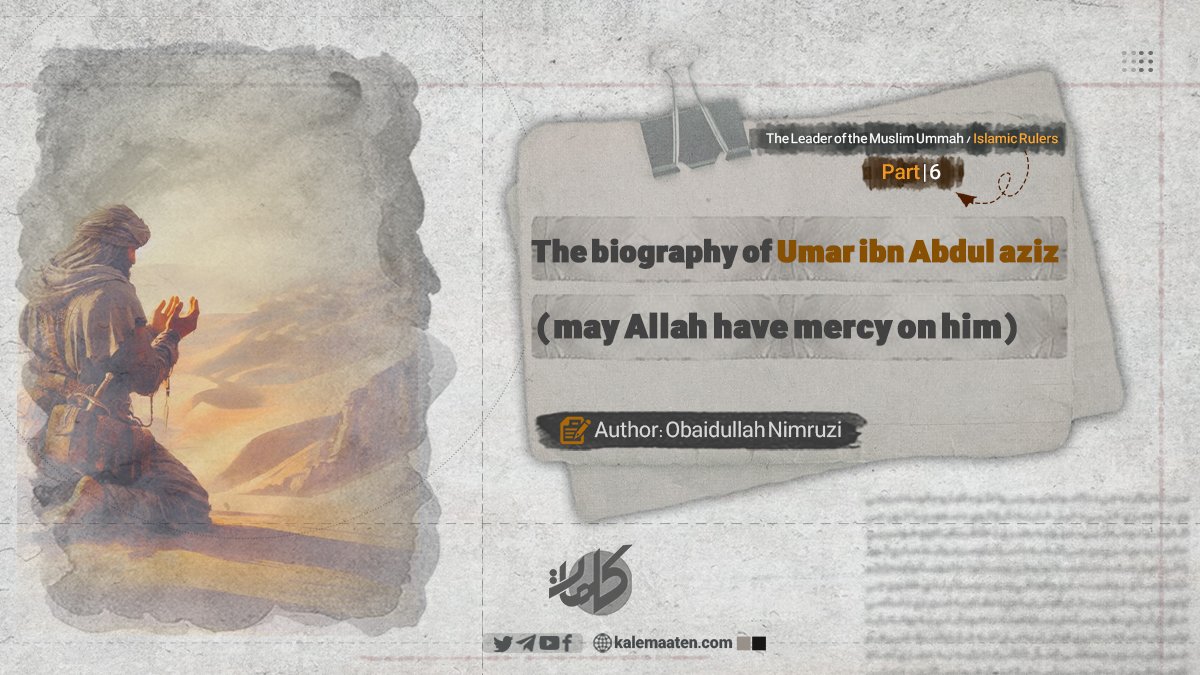
Author: Obaidullah Nimruzi
The Biography of Umar ibn Abdul Aziz ‘May Allah Have Mercy on Him’ (Part 6)
The First Century of Islam and the Caliphate of Umar bin Abdul Aziz (May Allah Have Mercy on Him)
In the first part of this study, the necessary explanations were provided, emphasizing that the true rulers and leaders of the world of humanity after the Prophets, may Allah bless them and grant them peace, were the Muslim rulers who shone like bright stars in various aspects of politics and governance. In this part, we will examine the era of the Umayyad government and concisely discuss the glorious life and biography of the Amir al Momineen, Umar bin Abdul Aziz, may Allah have mercy on him.
Ignorant Deviations of the Umayyad Era
The end of the Rashidun government and the consolidation of the Umayyad Caliphate, which was more Arabic than Islamic, created a need for revolution and an immediate renewal of the rules of Islam. The deviations of old ignorance, which had been buried by the guidance and efforts of the Prophet of Islam (peace and blessings of Allah be upon him) and the struggles of the Rightly Guided Caliphs, re-emerged among the new generation of Arab Muslims. The axis of governance was not based on the Book and Sunnah; rather, the approach to governance was dictated by Arab politics, national interests, relative pride, and racial prejudice.
Tribal pride, clan favoritism, and nepotism—traits considered great faults and sins during the time of the Rightly Guided Caliphs—flourished during this period. The ignorant manifestations of praise, flattery, and ambition became the driving forces behind actions and morals, overshadowing the pursuit of divine reward.
The treasury, which represented the wealth and capital of the Muslims, became personal and royal property. Groups emerged, including poets, court flatterers, and self-serving soldiers, to whom the capital and treasury of the Muslims were allocated, and their actions were tolerated.
For instance, the famous poet of the Umayyad era, “Ahzal the Christian,” born in 59 AH, approached Caliph Abdul Malik bin Marwan wearing a golden cross around his neck and with drops of wine glistening in his beard; no one dared to rebuke him.
The public grew eager to listen to vulgar songs and learn music. Consider this incident: the famous Iraqi singer named “Hunain” came to Medina at the invitation of his comrades and entertained the people with music and songs. The crowd was so large that the roof of the house collapsed, burying Hunain under the debris.
The deviant methods of the government and the irreligious lifestyle of the ruling apparatus left society in misery, leading to the emergence of a new group of “misguided and corrupt” individuals. Their morals mirrored those of the old corruptors from the time of ignorance, revealing that ignorance, once wounded, was now seeking revenge on its victorious opponent and was determined to settle the accounts of forty years in one day.
Continues…


